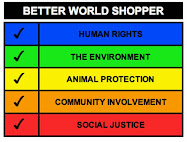-by www.zoutnet.co.za-
A young girl in Limpopo is approached by a very sophisticated lady who offers her a modelling contract far from home.
She feels flattered and thinks about the money that she will be able to send to her orphan brothers and sisters. She falls for the trick and is transported away. On the way, cocaine is shoved up her nose. She finds herself in an unknown place, trapped. After being raped repeatedly until she offers no more resistance, she is ready to be exploited as a sex slave.
An unreal scenario?
Maybe not, if taking into account that between 28 000 and 30 000 children are currently being pros-tituted in South Africa. Half of these children are younger than 14 years old. Limpopo, Mpumalanga and the Eastern Cape are the main “recruitment” areas for victims of human trafficking. Human trafficking is expected to increase significantly in the months preceding the 2010 Fifa World Cup in South Africa. The sex trade is also moving to middle- and high-income houses and rich neighbour-hoods near sports stadiums in the run-up to the world cup soccer tournament.
Information and statistics such as these were shared at the launch of a counter-human-trafficking campaign in Polokwane and Louis Trichardt and surrounds. On October 14, the Director of Stop Trafficking of People (STOP), Ms Corinne Sandenbergh of Stellenbosch, spoke at a LISA (Limpopo Independent Schools Association) meeting in Polokwane.
“Our children and women are not for sale,” Sandenbergh said.
Human trafficking is the exploitation of human beings by selling them for sex, bonded labour or domestic servitude. “Human trafficking is currently the fastest growing moneymaking scheme in the world. You can sell drugs or guns once, but a human being you can keep on selling for years on end,” informs www.givengain.com
“These people who traffic in humans are extremely cunning and totally unscrupulous. They employ innovative, devious methods. We want parents and children to be aware,” said Ms Sonja Prinsloo, Louis Trichardt coordinator of STOP.
The plan of action includes the training of teachers and volunteers. An educator’s manual on how to stop human trafficking, containing a detailed, easy-to-use les-son plan, is available. A DVD to create awareness is available as well as a complete written play, The butterfly spoke, which can be performed.
Part of the initiative is the Traffick Proof Project, as well as the Valuable to Jesus Project, where small dolls are knitted and given to children in Limpopo. “The doll is a tangible reminder to each child that he or she is special to the Lord and not to be trafficked,” Prinsloo said. Senior citizens and other people prepared to help with the knitting are requested urgently. A knitting pattern is available.
The involvement of churches is vital to help identify volunteers and to encourage intercessors to pray. Training for caregivers of trafficked victims is offered. Safe houses should be made available to support, counsel and empower trafficked victims.
The roll of the SAPS is crucial and police protocol will be observed. Last year, a persistent police officer from Port Elizabeth cracked a human trafficking syndicate.
Those talented in fundraising and communication are required to come to the fore to offer assistance. STOP is run in partnership with Firestorm Productions to put together an awareness campaign to inform and involve the public, also through Internet- based video clips and an interactive website. STOP is an alliance of like-hearted representatives from organisations that are involved in the fight against trafficking. For more information, visit www.givengain.com. Those who want to offer assistance or get involved can phone Corrinne on 082 456 2459 or Sonja on 084 700 7960.
source: http://www.zoutnet.co.za/details.asp?StoNum=7834
Subscribe to:
Post Comments (Atom)





No comments:
Post a Comment